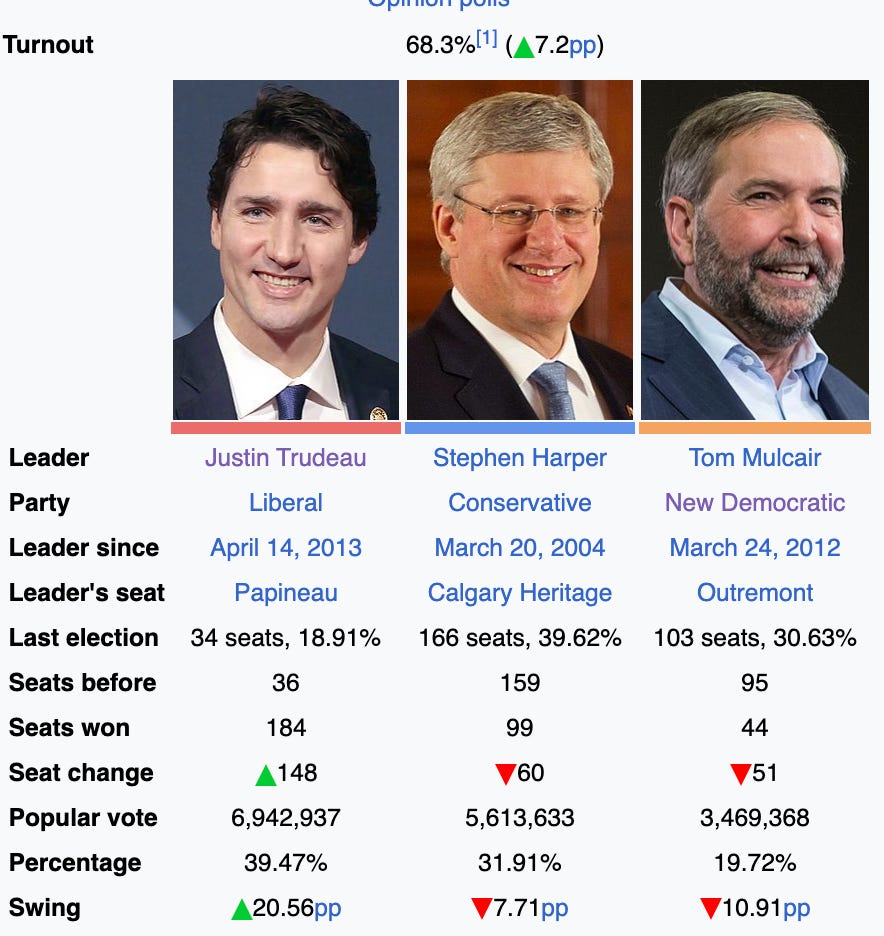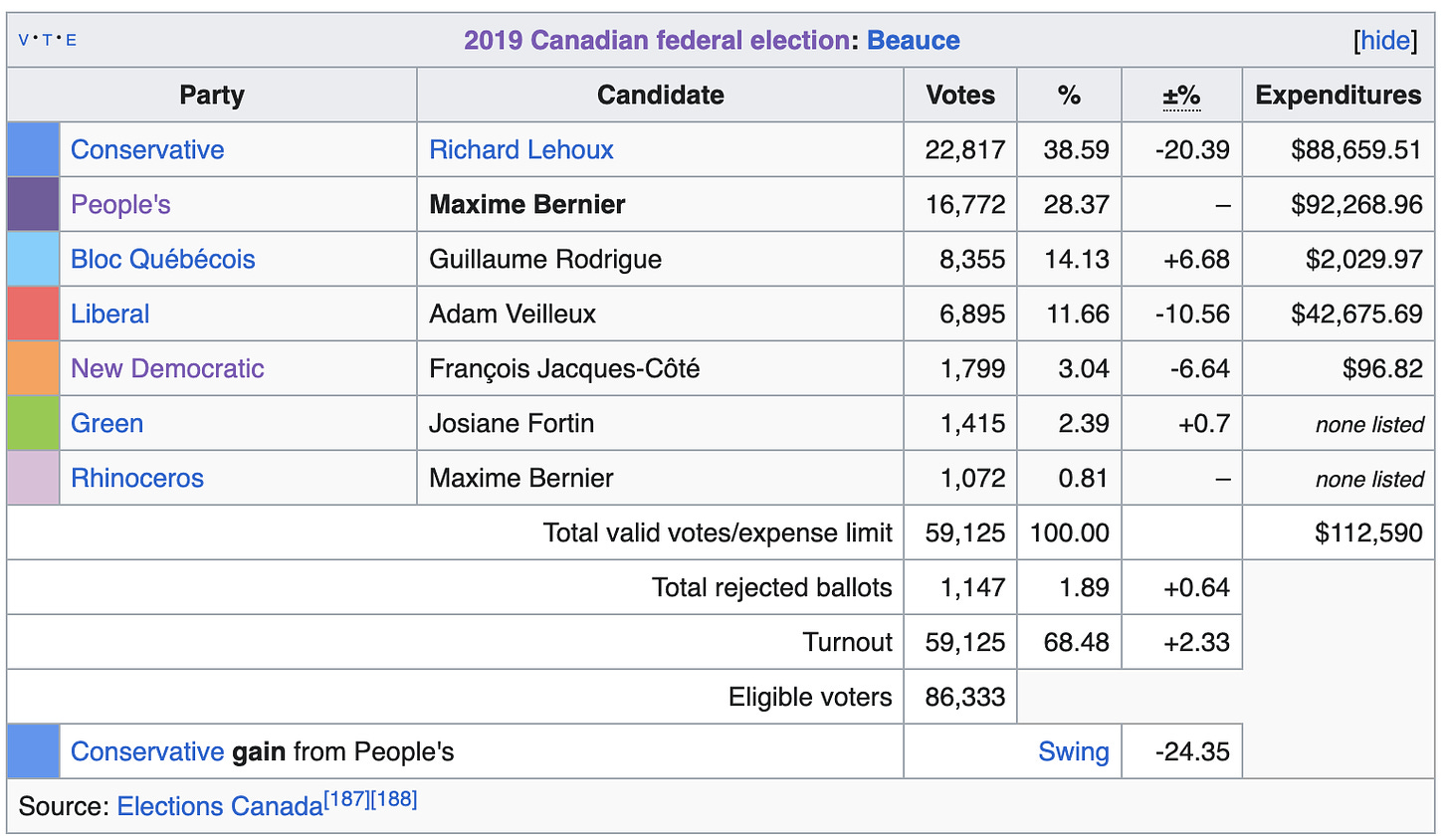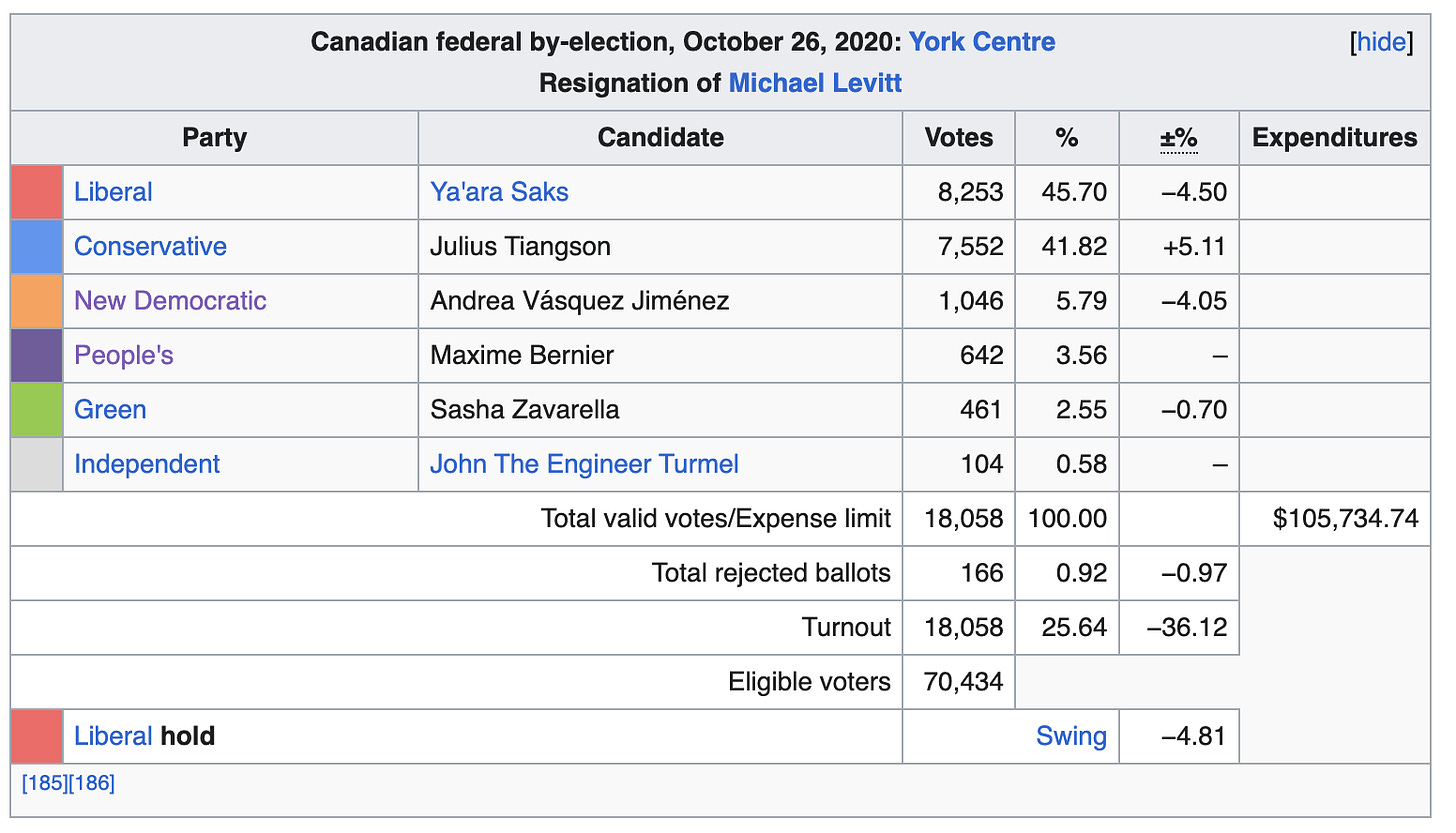The Rise Of Neo-Fascism In Canada
How the Conservative party is pandering to a far right base to secure votes.
To start, if you're seeking someone to assert that Conservative leader Pierre Poilievre is a fascist, then this article isn't going to fulfill that expectation. Despite everything we will discuss in this article, he is not a fascist.
However, he certainly tends to associate with individuals who are.
In 2015, Justin Trudeau was elected to form a government, commencing his term as the 23rd Prime Minister of Canada. At that time, Trudeau secured a substantial majority of 184 seats compared to the opposition's 99 seats. Trudeau was elected based on some significant policies, some of which he was unable to enact.
Fast forward 8 years, and now, two elections later, Trudeau is still the Prime Minister. Currently in a minority government, he finds himself projected to lose in 2025 if the polls are correct. (Please refrain from judging the accuracy of polls at this time.)
Assuming these polls turn out to be accurate, how did the Conservatives regain the favor of the Canadian populace? There are some straightforward answers but also some complex explanations. Ultimately, it boils down to the Conservatives' strategy shift and the adoption of a new playbook following O'Toole's unsuccessful election campaign.
In 2018, after an unsuccessful bid for the Conservative leadership, Maxime Bernier left the party to establish his own, called The People's Party of Canada. This party openly embraced an anti-immigration stance and exhibited far-right tendencies during their nationwide campaigning.
In their efforts to field a candidate in every riding, they failed to adequately vet several aspiring MPs, including one in Saint John-Rothesay, New Brunswick, who advocated for men to cease ejaculation and participate in a practice called "testicle breathing." Needless to say, the PPC didn't prioritize their image among voters, which resulted in their failure to win a seat in the two general elections and several by-elections since their party's formation.
That being said, the PPC has been effective at playing the role of a spoiler for the Conservatives. In Maxime Bernier's former riding of Beauce, he managed to divert 16,000 votes away from the Conservative candidate in that constituency.
While this didn't result in a riding not going to a Conservative, it did put the Bloc candidate 28 points closer to winning the riding. In 2020, there was a by-election in a former Liberal safe seat in Toronto that ran the risk of going Conservative after the party campaigned very hard. In the end, the Conservatives didn't win the riding but only lost by fewer than 1,000 votes. The PPC, however, finished in 4th place but did garner 650 votes. These votes most likely came from the Conservatives.
Now, insert Pierre Poilievre. The new Conservative leader has a significant task at hand and seems to have chosen his path to do so. He wants to be the next PM, and he is going to appeal to the right flank of his party, which has and will likely vote for the PPC again. He needs those 850,000 votes that the PPC received in 2021, and he is aware of that.
The Conservatives have analyzed all the numbers and what is likely to work. The party's coffers have the capability to fund this research. They have meticulously determined that they will gain more than they will lose by appealing to this far-right group of Canadians.
In 2021, during the 3-week occupation of Ottawa by the Freedom Convoy, you not only saw Pierre Poilievre but also other Conservative MPs speaking and seemingly supporting the occupation. While they didn't explicitly state their support, their words and interactions with the group indirectly indicated their support.
Let me ask you this: Why would a Conservative leader and other MPs in the party seemingly support a movement that, by definition, was anti-government and aimed to replace the very institution they are working in? The Freedom Convoy had valuable votes they needed, but it also served a greater purpose—it provided a platform for people to freely express their views. It was a group of individuals who could say what they wanted when they wanted, and the Conservatives could use this group to promote their narrative.
While this action isn't directly fascism, it shares some traits with it. In the 1920s and 1930s, the Nazis traveled across Germany, spoke in beer halls, and spread messages about the government's inadequacies while creating a negative image of Jewish people and Russian and Soviet Communists. They crafted an image of an enemy of the state that only they could rectify.
Now, let's return to Canada. You have a group of Canadians who spread their far-right messaging about the government every day and every weekend, claiming that they alone can fix it. These groups may be insignificant on their own, but they serve as a valuable tool for the Conservatives in our country.
They are the soapbox. They are the ones in the beer hall spreading anti-government messages to the public. Instead of these small factions taking over the government, the Conservatives position themselves to fill that role and address all issues. The question is, will Canadians allow that?
We will find out, but it seems the Conservatives are experiencing a rise in the polls at the moment. Election campaigns may, and probably will, level the playing field. Canada is going through an intriguing period, and political scientists, including myself, are closely observing how this will unfold.
Here's the question: If the Conservatives lose in 2025, where does the party go from here? What is their next step? Some may suggest that Pierre Poilievre will simply resign, and they will elect another spokesperson in his place. However, I don't believe that will be the case. I think Poilievre will double down and become more aggressive in the following election(s).
Regardless, we all need to vote in 2025 and beyond. We are a country that makes decisions in the ballot box, not by waving explicit flags and occupying street corners in the guise of "Freedom."








